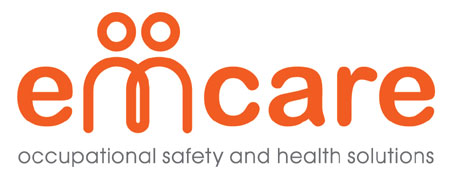In Scotland’s care sector, the wellbeing of both staff and service users relies heavily on understanding and addressing mental health needs. With increasing demands placed on care workers, implementing structured mental health training is more essential than ever. Scottish Mental Health First Aid (SMHFA) is a vital initiative that equips frontline staff with the skills to respond to mental health issues effectively and confidently.
As challenges in the sector grow, supporting mental health in Scotland’s care sector is not just a recommendation; it is a necessity. This is particularly true when considering the pressures facing both urban and rural providers across the country.
Why Mental Health Support Is Crucial for Scotland’s Care Workers
Scotland’s care sector plays a critical role in supporting vulnerable individuals, many of whom face complex mental health challenges. At the same time, care workers themselves often experience high levels of emotional strain. Long hours, emotional labour, exposure to trauma, and lack of mental health resources contribute to stress, anxiety, and burnout.
Frontline staff in both residential and community settings are frequently the first to observe signs of distress or mental illness in service users. Without proper training, it can be difficult to know how to respond safely and effectively. That is why SMHFA exists, to close that gap and improve outcomes for both staff and the people they care for.
Unique Challenges in Scottish Care Environments
Scottish mental health care settings present distinct challenges. Many care providers operate in remote and rural locations where resources are stretched thin and access to specialist support is limited. Staffing shortages are another widespread issue, often leading to increased pressure on remaining employees and reduced opportunities for training or peer collaboration.
These stressors can lead to feelings of isolation among care staff, heightening the risk of emotional fatigue and negatively affecting care delivery. In such environments, it becomes all the more important to build internal resilience and foster a supportive workplace culture.
How SMHFA Training Makes a Difference
Scottish Mental Health First Aid training offers practical tools to help care professionals manage real-life situations. Through this programme, staff learn to identify early warning signs of mental health problems, engage in non-judgmental conversations, and support individuals until appropriate help is available.
The training covers common conditions like depression, anxiety, self-harm, psychosis, and substance misuse. It also promotes peer support by encouraging staff to look out for one another, share experiences, and normalise conversations around mental health in the
SMHFA Training for Frontline Staff
In Scotland, investing in scottish mental health training for frontline staff is a vital part of raising standards in care environments. Scottish Mental Health First Aid (SMHFA) equips care assistants, support workers, and nurses with essential skills to recognise, respond, and support individuals dealing with mental health challenges. This training promotes confidence, early intervention, and respectful, informed support.
What the Learning Environment Feels Like
SMHFA training sessions are structured, supportive, and highly interactive. More than just a classroom format, the course fosters a safe and engaging space where participants are encouraged to share experiences and ask questions. The training includes:
- Group discussions
- Case studies
- Video materials
- Role-playing exercises
- Insights from trainers with lived experience
This environment allows learners to engage emotionally as well as intellectually, which improves retention and confidence.
What the SMHFA Course Covers
Participants will learn to:
- Recognise early signs of mental distress
- Provide non-judgmental listening and initial support
- Respond to situations involving depression, anxiety, psychosis, or suicidal thoughts
- Make safe and appropriate referrals to professional services
The course also addresses crisis situations and helps reduce stigma, building a more inclusive approach to workplace wellbeing.
How the Training Is Delivered in a Scottish Context
SMHFA is a certified programme under Public Health Scotland and follows quality standards monitored by NHS frameworks. Training is delivered by accredited instructors across the country, using materials developed with Scottish communities in mind.
- In-person sessions are available in major Scottish cities and rural areas
- Online and hybrid options are also available for flexibility
- Resources are supported by Scottish Government funding
This ensures accessibility for organisations of all sizes and types.
Target Audience: Frontline Care Staff
SMHFA is designed for those working directly with individuals in distress. This includes:
- Care home staff
- Domiciliary carers
- Community support workers
- Mental health service providers
- Nurses and healthcare assistants
For these professionals, SMHFA is more than training, it is a framework for compassionate, competent care.
Role of Peer Support in SMHFA
After completing the course, many teams implement peer support systems to sustain learning and build a culture of accountability. This might include:
- Regular check-ins among trained MHFAiders
- Informal support groups
- Monthly refreshers or discussion circles
These peer-based systems help maintain the confidence to act and reinforce mental health best
Benefits of SMHFA Training in the Care Sector
Mental health is an essential aspect of high-quality care. In the demanding environment of the care sector, equipping frontline staff with the right skills to support themselves and others can lead to transformational outcomes. Scotland’s Mental Health First Aid (SMHFA) training is becoming a core component of professional development across care services, and for good reason.
This structured, evidence-based training programme empowers care workers to confidently respond to mental health challenges in the workplace. Let’s explore the key benefits of SMHFA training for staff and service users alike.
Improved Confidence and Empowerment of Frontline Staff
Care staff often serve on the frontline of emotional and psychological challenges. From working with individuals with complex mental health needs to supporting family members and colleagues, their role extends far beyond physical care.
SMHFA training gives staff the tools to:
- Recognise early signs of mental health issues such as anxiety, depression, and psychosis
- Approach and support someone in distress with compassion and clarity
- Direct individuals toward the appropriate support channels
The result is a workforce that feels more capable and better prepared to handle sensitive situations. Many care providers in Scotland have reported a noticeable increase in staff confidence and morale after completing the training.
Enhanced Wellbeing for Staff and Better Outcomes for Service Users
By equipping staff with mental health first aid skills, employers are not only enhancing support for service users but also demonstrating a commitment to the wellbeing of their teams. When employees feel cared for, they are more engaged, productive, and likely to stay in their roles.
Staff trained in SMHFA are more likely to:
- Recognise and manage their own stress
- Support each other during emotionally difficult periods
- Foster a culture of open dialogue and mutual respect
For service users, this translates into more attentive, empathetic care and improved overall satisfaction. Several organisations across Scotland have seen a reduction in incidents related to unmanaged mental distress and an increase in positive feedback from both residents and families.
Boosting Team Resilience and Reducing Absenteeism
Resilience is essential in care settings, where emotional fatigue and burnout can quickly take hold. SMHFA training helps teams develop a shared understanding of mental health and a proactive mindset when challenges arise.
This shared foundation builds stronger peer support networks within the organisation and reduces feelings of isolation among staff. In turn, many care homes and support services in Scotland have observed a decline in sickness-related absences and a stronger sense of unity in their teams after rolling out the training.
Evidence from Scottish Care Organisations
The impact of SMHFA training is not just anecdotal. Evaluations from various care organisations across Scotland have shown measurable improvements in staff wellbeing, team dynamics, and service quality. One care provider in Glasgow noted a 30% decrease in stress-related absences within six months of implementing regular SMHFA courses.
Another organisation working with individuals with learning disabilities highlighted how staff felt more confident initiating conversations about mental health, leading to earlier interventions and stronger relationships with service users.


